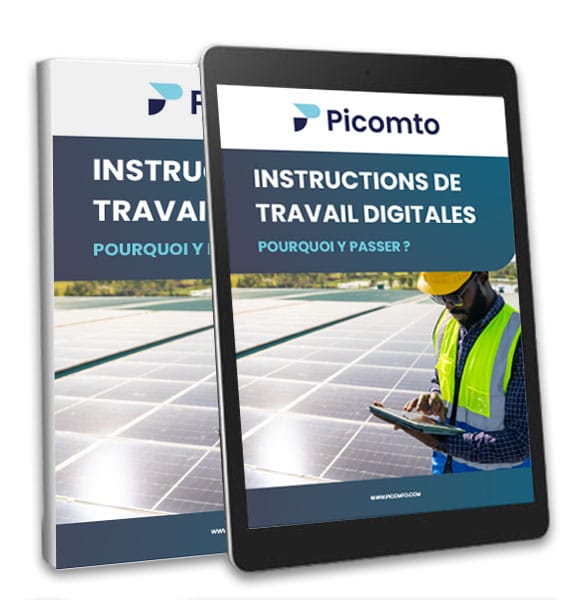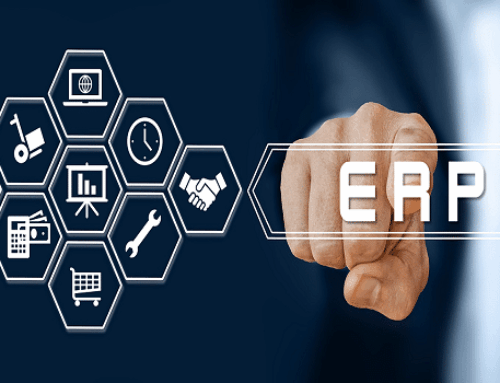How can your industrial company remain competitive in the face of 2025’s technological challenges? Is digital consulting becoming imperative for surviving in a constantly evolving industrial environment? These questions now concern all leaders in the manufacturing sector. Indeed, digital transformation is no longer an option but a strategic necessity for industrial companies wishing to optimize their processes, reduce operational costs, and improve production flexibility. Consequently, engaging specialized digital consulting enables accompanying this transformation by proposing technological solutions adapted to the specific challenges of Industry 4.0.
In this context, digital intervention management solutions play a key role by enabling companies to coordinate, monitor, and optimize maintenance and production activities in real time, ensuring maximum operational efficiency.

Key takeaways regarding industrial digital consulting:
- Personalized digital strategy: each company requires a customized approach adapted to its business processes
- Measurable ROI: digitalization generates concrete gains in productivity and cost reduction
- Essential change management: strategic support guarantees adoption of new technologies
- Integrated technologies: Industrial IoT, predictive maintenance, and augmented reality transform operations
Are you wondering about digital’s impact in your factory?
Contact our experts for an initial assessment.
1. Why do industrial companies need digital consulting today?
Digitalization of industrial processes represents a major challenge today for maintaining competitiveness.
However, companies face complex challenges that require specialized expertise. Furthermore, the rapid evolution of technologies makes strategic support indispensable for successful digital transformation.
1.1. What are the main challenges for industry in 2025?
Industrial companies encounter several major obstacles:
- Competitive pressure: globalized markets and shortened product life cycles
- Operational complexity: fragmented data management across different systems
- Skills shortage: difficulty recruiting qualified technical profiles
- Regulatory constraints: increasingly strict quality and safety standards
1.2. How does digital solve these challenges?
Digital consulting provides concrete solutions through:
- Process automation: reduction of human errors and productivity gains
- System interconnection: unified data vision and real-time management
- Digital workplace: collaborative tools facilitating team work
- Advanced technological solutions: machine learning and data analytics for decision support
1.3. What concrete gains can be expected?
Measurable benefits include:
- Cost optimization: Considerable reduction in maintenance costs
- Continuous improvement: shorter and more flexible production cycles
- Operational excellence: reduction in quality defects
- Digital innovation: development of new value-added services
2. What are the essential digital solutions for modern industry?
The technological ecosystem of Industry 4.0 relies on several fundamental pillars. Nevertheless, each solution must integrate harmoniously into the existing environment. Thus, a global approach maximizes the return on investment of these technological investments.
2.1. How to effectively digitalize your work procedures?
Digitization of operational data radically transforms efficiency:
- Digital instructions: replacing paper with intuitive interfaces
- Complete traceability: real-time operation tracking and compliance
- Process standardization: harmonization of practices across sites
- Data management: capitalizing on business expertise
Ready to digitalize your operating procedures?
Discover how Picomto simplifies the creation of digital work instructions!
2.2. What role for connected maintenance?
Predictive maintenance revolutionizes equipment management:
- Industrial IoT: intelligent sensors monitoring machine conditions
- Digital twin: virtual simulation to anticipate breakdowns
- Data analysis platform: predictive algorithms optimizing task planning
- Collaborative robotics: assistance to technicians for interventions
2.3. How to optimize training with digital?
Digital learning accelerates skills development:
- Augmented reality: immersive training directly in the field
- Agile environment: adaptive modules according to learner level
- Skills management: personalized tracking of individual progress
- Testing and learning: continuous evaluation and program improvement
3. How to implement successful digital transformation?
The success of a digitalization project relies on proven methodology. On one hand, the digital maturity audit enables establishing precise diagnosis.
On the other hand, integrating advanced technologies requires rigorous management to guarantee achievement of set objectives.
3.1. Where to start your digital transformation?
The digital transformation audit constitutes the crucial first step:
- Organizational diagnosis 4.0: assessment of existing situation and priority identification
- Economic model: cost-benefit analysis of different scenarios
- Roadmap: phased planning with measurable milestones
- Inter-service synergy: team alignment around common objectives
3. How to implement successful digital transformation?
The success of a digitalization project relies on proven methodology. On one hand, the digital maturity audit enables establishing precise diagnosis.
On the other hand, integrating advanced technologies requires rigorous management to guarantee achievement of set objectives.

3.1. Where to start your digital transformation?
The digital transformation audit constitutes the crucial first step:
- Organizational diagnosis 4.0: assessment of existing situation and priority identification
- Economic model: cost-benefit analysis of different scenarios
- Roadmap: phased planning with measurable milestones
- Inter-service synergy: team alignment around common objectives
3.2. How to choose the right solutions?
Technological selection requires a methodical approach:
- Custom solution development: adaptation to business specificities
- Technology integration: compatibility with existing infrastructure
- Scalability: expansion capacity according to company growth
- Technical support: long-term supplier support
3.3. How to support change?
Change management determines project success:
- Team training: progressive and targeted skills development
- Internal communication: awareness of transformation benefits
- Industrial pilots: concrete demonstration on restricted perimeters
- Cross-functional collaboration: involvement of all hierarchical levels
4. Discover Picomto: The Complete Solution to Digitalize Your Industrial Processes
Picomto has been supporting industrial companies in their digital transformation for over 10 years.
Indeed, our platform integrates all functionalities necessary for operations digitalization. Moreover, our sectoral expertise guarantees an approach adapted to each industry’s specific challenges.
4.1. What advantages for production and quality?
Our solution directly optimizes your performance indicators:
- Non-conformity reduction: visual instructions and integrated controls
- Connected factory: real-time production management
- Production flexibility: rapid adaptation to product line changes
- Enhanced traceability: automatic operation documentation
4.2. How to improve maintenance with Picomto?
Maintenance becomes predictive and optimized:
- Intelligent planning: anticipation of intervention needs
- Enriched documentation: interactive procedures with photos and videos
- Experience feedback: capitalization on field best practices
- Total mobility: information access from any connected equipment
4.3. What added value for training?
Learning becomes interactive and efficient:
- Field training: learning directly on equipment
- Measured progress: individual tracking of acquired skills
- Multimedia support: rich content facilitating understanding
- Centralized updates: instant distribution of new procedures
Conclusion
Digital consulting represents an unavoidable strategic lever for industrial companies in 2025. Indeed, digital transformation enables significant process optimization, quality improvement, and operational cost reduction.
Consequently, surrounding yourself with specialized experts guarantees a methodological approach adapted to your sector’s specific challenges. For companies in highly regulated sectors like aerospace, implementing an ERP for the Aerospace Industry can streamline compliance, production, and maintenance processes while integrating seamlessly with other Industry 4.0 technologies. Finally, Picomto accompanies you in this approach by proposing a complete and proven solution to succeed in your industrial digitalization.
FAQ
What is industrial digitalization?
Transformation of physical processes into connected digital solutions to optimize operations.
What are the 3 pillars of digital transformation?
Technology, business processes, and organizational change management.
How to digitalize my company?
Initial audit, digital strategy, progressive deployment with expert support.
What are the types of digitalization?
Processes, products, business models, and customer experience.
What is the main purpose of company digitalization?
Improve operational efficiency and market competitiveness.
What are digital tools?
IoT, artificial intelligence, augmented reality, collaborative platforms.
What are the 5 phases of digital transformation?
Audit, strategy, pilot, deployment, continuous optimization.
What is the difference between digital and numeric?
Digital concerns transformation, numeric designates technologies used.






Leave A Comment